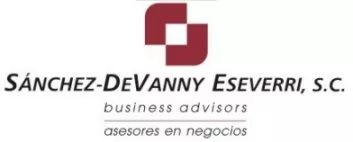Originally published September, 2005.
Business Week magazine recently published that the Coca-Cola trademark has been valued in $70,450 million dollars. This amount that represents the biggest percentage of its capital; however, said intangible asset wouldn't be worth anything without proper protection.
Intellectual Property valuation is a reference point in order to take important business decisions. The proper or improper attention to the valuation and protection of your company's intangibles could have serious impact in a number of scenarios such as:
- Mergers, acquisitions or spin-offs (the value of intangibles value in a negotiation, represent the possibility to charge a "premium" for properly protected IP).
- License or franchise exploitation (the possibility of obtaining new sources of income, enlarge your operation and position your business both nationally and internationally).
- Purchase and sale of intellectual property assets (again, the possibility to reap economic benefits when acquiring or selling a properly "shielded" and well-known intangible asset).
- Strategic alliances (equitable participation regarding the valuation of assets contributed by each of the parties, including intangible assets).
- Bank financing (Intellectual Property's expression in financial statements can be a proper endorsement for them).
Even in important matters such as:
- The Tax treatment (Income Tax, Value Added Tax, Asset Tax, international tax treaties, intangibles based tax planning, etc.).
- The Accounting treatment, of research costs of development, preoperative IP developed which can be capitalized or recognition as preoperative expenses and valuation rules for intangible assets.
Concisely, adequately protected, managed and appraised Intellectual Property rights, allow for a better negotiating position and increases avenues for a company's income generation.
When stockholders consider the value of intellectual property in the market, they become more interested in the reflection thereof in their company's financial statement expression, demanding that Management inform them of the value of the intellectual property and the way in which IP is used.
Ironically, regardless of the importance and complexity of Intellectual Property rights, inventors, authors, accountants and auditors rarely work together to ensure that IP rights are properly reflected, if at all, in a company's financial statements. Unfortunately, through the years, we have encountered a large number of companies who had not realized the value that they created. Therefore, they had not implemented the steps required for the adequate protection of their IP (for example confidentiality agreements, registries, etc.).
Assets such as software, formulas (for food, cosmetics or chemicals), improvements to machinery, processes, packaging, business plans, publicity, branding, data bases, client lists, routes, distribution channels, plans, logos, slogans, trademarks, designs, complied information, photographs, inventions, magazines and prototypes among others, are often times considered as working material, and not protected. Therefore, they lose the great value they represent.
Does your company maintain an inventory of your intellectual property assets? Do you know which kind of protection is available for such assets? Remember that deficient protection equals to defenselessness. Hence, it is crucial that this protection covers all markets in which the Intellectual Property might have influence or could eventually be used. By ensuring that it is protected in the markets of influence and under the proper classification, eventually which might vary from country to country, your company will benefit of the IP's rights value. Also analysis to determine if licenses have been granted and if so if such licenses agreements are registered to guarantee that their best protection and defense is secured.
Where should you start? In order to give your Intellectual Property the proper protection and, value for your business, we suggest answering the following questions:
- From which kind of intangibles does my operation depends on? (trademarks, trade secrets, inventions, confidential information, etc.)
- How would my company be affected if I decided to change my trademark?
- What would happen if my trademark did not exist?
- How much control do I have over the Intellectual Property that IS in fact registered?
- What would happen if any of my competitors used my "secret" formulas or "secret" information?
Answering these questions could be a starting point in order to evaluate if your intangibles are properly protected and what must be done to protect your intangibles , enhance their value and be reflected in your company's financials.
The content of this article is intended to provide a general guide to the subject matter. Specialist advice should be sought about your specific circumstances.

